-
EXECUTIVE SUMMARY
-
Market Overview
-
Key Findings
-
Market Segmentation
-
Competitive Landscape
-
Challenges and Opportunities
-
Future Outlook
-
MARKET INTRODUCTION
-
Definition
-
Scope of the study
-
Research Objective
-
Assumption
-
Limitations
-
RESEARCH METHODOLOGY
-
Overview
-
Data Mining
-
Secondary Research
-
Primary Research
-
Primary Interviews and Information Gathering Process
-
Breakdown of Primary Respondents
-
Forecasting Model
-
Market Size Estimation
-
Bottom-Up Approach
-
Top-Down Approach
-
Data Triangulation
-
Validation
-
MARKET DYNAMICS
-
Overview
-
Drivers
-
Restraints
-
Opportunities
-
MARKET FACTOR ANALYSIS
-
Value chain Analysis
-
Porter's Five Forces Analysis
-
Bargaining Power of Suppliers
-
Bargaining Power of Buyers
-
Threat of New Entrants
-
Threat of Substitutes
-
Intensity of Rivalry
-
COVID-19 Impact Analysis
-
Market Impact Analysis
-
Regional Impact
-
Opportunity and Threat Analysis
-
Eyewear Market, BY Product Type (USD Billion)
-
Prescription Glasses
-
Sunglasses
-
Reading Glasses
-
Contact Lenses
-
Safety Glasses
-
Eyewear Market, BY Material (USD Billion)
-
Plastic
-
Metal
-
Glass
-
Composite
-
Wood
-
Eyewear Market, BY End User (USD Billion)
-
Men
-
Women
-
Children
-
Unisex
-
Eyewear Market, BY Distribution Channel (USD Billion)
-
Online Retail
-
Offline Retail
-
Optical Stores
-
Department Stores
-
Eyewear Market, BY Regional (USD Billion)
-
North America
-
US
-
Canada
-
Europe
-
Germany
-
UK
-
France
-
Russia
-
Italy
-
Spain
-
Rest of Europe
-
APAC
-
China
-
India
-
Japan
-
South Korea
-
Malaysia
-
Thailand
-
Indonesia
-
Rest of APAC
-
South America
-
Brazil
-
Mexico
-
Argentina
-
Rest of South America
-
MEA
-
GCC Countries
-
South Africa
-
Rest of MEA
-
Competitive Landscape
-
Overview
-
Competitive Analysis
-
Market share Analysis
-
Major Growth Strategy in the Eyewear Market
-
Competitive Benchmarking
-
Leading Players in Terms of Number of Developments in the Eyewear Market
-
Key developments and growth strategies
-
New Product Launch/Service Deployment
-
Merger & Acquisitions
-
Joint Ventures
-
Major Players Financial Matrix
-
Sales and Operating Income
-
Major Players R&D Expenditure. 2023
-
Company Profiles
-
Oakley
-
Financial Overview
-
Products Offered
-
Key Developments
-
SWOT Analysis
-
Key Strategies
-
Dior
-
Financial Overview
-
Products Offered
-
Key Developments
-
SWOT Analysis
-
Key Strategies
-
Chanel
-
Financial Overview
-
Products Offered
-
Key Developments
-
SWOT Analysis
-
Key Strategies
-
Prada
-
Financial Overview
-
Products Offered
-
Key Developments
-
SWOT Analysis
-
Key Strategies
-
RayBan
-
Financial Overview
-
Products Offered
-
Key Developments
-
SWOT Analysis
-
Key Strategies
-
Safilo Group
-
Financial Overview
-
Products Offered
-
Key Developments
-
SWOT Analysis
-
Key Strategies
-
Adidas
-
Financial Overview
-
Products Offered
-
Key Developments
-
SWOT Analysis
-
Key Strategies
-
Fendi
-
Financial Overview
-
Products Offered
-
Key Developments
-
SWOT Analysis
-
Key Strategies
-
Gucci
-
Financial Overview
-
Products Offered
-
Key Developments
-
SWOT Analysis
-
Key Strategies
-
Luxottica
-
Financial Overview
-
Products Offered
-
Key Developments
-
SWOT Analysis
-
Key Strategies
-
Maui Jim
-
Financial Overview
-
Products Offered
-
Key Developments
-
SWOT Analysis
-
Key Strategies
-
Z Willow
-
Financial Overview
-
Products Offered
-
Key Developments
-
SWOT Analysis
-
Key Strategies
-
Marchon Eyewear
-
Financial Overview
-
Products Offered
-
Key Developments
-
SWOT Analysis
-
Key Strategies
-
Nike
-
Financial Overview
-
Products Offered
-
Key Developments
-
SWOT Analysis
-
Key Strategies
-
Essilor
-
Financial Overview
-
Products Offered
-
Key Developments
-
SWOT Analysis
-
Key Strategies
-
Appendix
-
References
-
Related Reports
-
LIST Of tables
-
LIST OF ASSUMPTIONS
-
North America Eyewear Market SIZE ESTIMATES & Eyewear Market, BY PRODUCT TYPE, 2019-2035 (USD Billions)
-
North America Eyewear Market SIZE ESTIMATES & Eyewear Market, BY MATERIAL, 2019-2035 (USD Billions)
-
North America Eyewear Market SIZE ESTIMATES & Eyewear Market, BY END USER, 2019-2035 (USD Billions)
-
North America Eyewear Market SIZE ESTIMATES & Eyewear Market, BY DISTRIBUTION CHANNEL, 2019-2035 (USD Billions)
-
North America Eyewear Market SIZE ESTIMATES & Eyewear Market, BY REGIONAL, 2019-2035 (USD Billions)
-
US Eyewear Market SIZE ESTIMATES & Eyewear Market, BY PRODUCT TYPE, 2019-2035 (USD Billions)
-
US Eyewear Market SIZE ESTIMATES & Eyewear Market, BY MATERIAL, 2019-2035 (USD Billions)
-
US Eyewear Market SIZE ESTIMATES & Eyewear Market, BY END USER, 2019-2035 (USD Billions)
-
US Eyewear Market SIZE ESTIMATES & Eyewear Market, BY DISTRIBUTION CHANNEL, 2019-2035 (USD Billions)
-
US Eyewear Market SIZE ESTIMATES & Eyewear Market, BY REGIONAL, 2019-2035 (USD Billions)
-
Canada Eyewear Market SIZE ESTIMATES & Eyewear Market, BY PRODUCT TYPE, 2019-2035 (USD Billions)
-
Canada Eyewear Market SIZE ESTIMATES & Eyewear Market, BY MATERIAL, 2019-2035 (USD Billions)
-
Canada Eyewear Market SIZE ESTIMATES & Eyewear Market, BY END USER, 2019-2035 (USD Billions)
-
Canada Eyewear Market SIZE ESTIMATES & Eyewear Market, BY DISTRIBUTION CHANNEL, 2019-2035 (USD Billions)
-
Canada Eyewear Market SIZE ESTIMATES & Eyewear Market, BY REGIONAL, 2019-2035 (USD Billions)
-
Europe Eyewear Market SIZE ESTIMATES & Eyewear Market, BY PRODUCT TYPE, 2019-2035 (USD Billions)
-
Europe Eyewear Market SIZE ESTIMATES & Eyewear Market, BY MATERIAL, 2019-2035 (USD Billions)
-
Europe Eyewear Market SIZE ESTIMATES & Eyewear Market, BY END USER, 2019-2035 (USD Billions)
-
Europe Eyewear Market SIZE ESTIMATES & Eyewear Market, BY DISTRIBUTION CHANNEL, 2019-2035 (USD Billions)
-
Europe Eyewear Market SIZE ESTIMATES & Eyewear Market, BY REGIONAL, 2019-2035 (USD Billions)
-
Germany Eyewear Market SIZE ESTIMATES & Eyewear Market, BY PRODUCT TYPE, 2019-2035 (USD Billions)
-
Germany Eyewear Market SIZE ESTIMATES & Eyewear Market, BY MATERIAL, 2019-2035 (USD Billions)
-
Germany Eyewear Market SIZE ESTIMATES & Eyewear Market, BY END USER, 2019-2035 (USD Billions)
-
Germany Eyewear Market SIZE ESTIMATES & Eyewear Market, BY DISTRIBUTION CHANNEL, 2019-2035 (USD Billions)
-
Germany Eyewear Market SIZE ESTIMATES & Eyewear Market, BY REGIONAL, 2019-2035 (USD Billions)
-
UK Eyewear Market SIZE ESTIMATES & Eyewear Market, BY PRODUCT TYPE, 2019-2035 (USD Billions)
-
UK Eyewear Market SIZE ESTIMATES & Eyewear Market, BY MATERIAL, 2019-2035 (USD Billions)
-
UK Eyewear Market SIZE ESTIMATES & Eyewear Market, BY END USER, 2019-2035 (USD Billions)
-
UK Eyewear Market SIZE ESTIMATES & Eyewear Market, BY DISTRIBUTION CHANNEL, 2019-2035 (USD Billions)
-
UK Eyewear Market SIZE ESTIMATES & Eyewear Market, BY REGIONAL, 2019-2035 (USD Billions)
-
France Eyewear Market SIZE ESTIMATES & Eyewear Market, BY PRODUCT TYPE, 2019-2035 (USD Billions)
-
France Eyewear Market SIZE ESTIMATES & Eyewear Market, BY MATERIAL, 2019-2035 (USD Billions)
-
France Eyewear Market SIZE ESTIMATES & Eyewear Market, BY END USER, 2019-2035 (USD Billions)
-
France Eyewear Market SIZE ESTIMATES & Eyewear Market, BY DISTRIBUTION CHANNEL, 2019-2035 (USD Billions)
-
France Eyewear Market SIZE ESTIMATES & Eyewear Market, BY REGIONAL, 2019-2035 (USD Billions)
-
Russia Eyewear Market SIZE ESTIMATES & Eyewear Market, BY PRODUCT TYPE, 2019-2035 (USD Billions)
-
Russia Eyewear Market SIZE ESTIMATES & Eyewear Market, BY MATERIAL, 2019-2035 (USD Billions)
-
Russia Eyewear Market SIZE ESTIMATES & Eyewear Market, BY END USER, 2019-2035 (USD Billions)
-
Russia Eyewear Market SIZE ESTIMATES & Eyewear Market, BY DISTRIBUTION CHANNEL, 2019-2035 (USD Billions)
-
Russia Eyewear Market SIZE ESTIMATES & Eyewear Market, BY REGIONAL, 2019-2035 (USD Billions)
-
Italy Eyewear Market SIZE ESTIMATES & Eyewear Market, BY PRODUCT TYPE, 2019-2035 (USD Billions)
-
Italy Eyewear Market SIZE ESTIMATES & Eyewear Market, BY MATERIAL, 2019-2035 (USD Billions)
-
Italy Eyewear Market SIZE ESTIMATES & Eyewear Market, BY END USER, 2019-2035 (USD Billions)
-
Italy Eyewear Market SIZE ESTIMATES & Eyewear Market, BY DISTRIBUTION CHANNEL, 2019-2035 (USD Billions)
-
Italy Eyewear Market SIZE ESTIMATES & Eyewear Market, BY REGIONAL, 2019-2035 (USD Billions)
-
Spain Eyewear Market SIZE ESTIMATES & Eyewear Market, BY PRODUCT TYPE, 2019-2035 (USD Billions)
-
Spain Eyewear Market SIZE ESTIMATES & Eyewear Market, BY MATERIAL, 2019-2035 (USD Billions)
-
Spain Eyewear Market SIZE ESTIMATES & Eyewear Market, BY END USER, 2019-2035 (USD Billions)
-
Spain Eyewear Market SIZE ESTIMATES & Eyewear Market, BY DISTRIBUTION CHANNEL, 2019-2035 (USD Billions)
-
Spain Eyewear Market SIZE ESTIMATES & Eyewear Market, BY REGIONAL, 2019-2035 (USD Billions)
-
Rest of Europe Eyewear Market SIZE ESTIMATES & Eyewear Market, BY PRODUCT TYPE, 2019-2035 (USD Billions)
-
Rest of Europe Eyewear Market SIZE ESTIMATES & Eyewear Market, BY MATERIAL, 2019-2035 (USD Billions)
-
Rest of Europe Eyewear Market SIZE ESTIMATES & Eyewear Market, BY END USER, 2019-2035 (USD Billions)
-
Rest of Europe Eyewear Market SIZE ESTIMATES & Eyewear Market, BY DISTRIBUTION CHANNEL, 2019-2035 (USD Billions)
-
Rest of Europe Eyewear Market SIZE ESTIMATES & Eyewear Market, BY REGIONAL, 2019-2035 (USD Billions)
-
APAC Eyewear Market SIZE ESTIMATES & Eyewear Market, BY PRODUCT TYPE, 2019-2035 (USD Billions)
-
APAC Eyewear Market SIZE ESTIMATES & Eyewear Market, BY MATERIAL, 2019-2035 (USD Billions)
-
APAC Eyewear Market SIZE ESTIMATES & Eyewear Market, BY END USER, 2019-2035 (USD Billions)
-
APAC Eyewear Market SIZE ESTIMATES & Eyewear Market, BY DISTRIBUTION CHANNEL, 2019-2035 (USD Billions)
-
APAC Eyewear Market SIZE ESTIMATES & Eyewear Market, BY REGIONAL, 2019-2035 (USD Billions)
-
China Eyewear Market SIZE ESTIMATES & Eyewear Market, BY PRODUCT TYPE, 2019-2035 (USD Billions)
-
China Eyewear Market SIZE ESTIMATES & Eyewear Market, BY MATERIAL, 2019-2035 (USD Billions)
-
China Eyewear Market SIZE ESTIMATES & Eyewear Market, BY END USER, 2019-2035 (USD Billions)
-
China Eyewear Market SIZE ESTIMATES & Eyewear Market, BY DISTRIBUTION CHANNEL, 2019-2035 (USD Billions)
-
China Eyewear Market SIZE ESTIMATES & Eyewear Market, BY REGIONAL, 2019-2035 (USD Billions)
-
India Eyewear Market SIZE ESTIMATES & Eyewear Market, BY PRODUCT TYPE, 2019-2035 (USD Billions)
-
India Eyewear Market SIZE ESTIMATES & Eyewear Market, BY MATERIAL, 2019-2035 (USD Billions)
-
India Eyewear Market SIZE ESTIMATES & Eyewear Market, BY END USER, 2019-2035 (USD Billions)
-
India Eyewear Market SIZE ESTIMATES & Eyewear Market, BY DISTRIBUTION CHANNEL, 2019-2035 (USD Billions)
-
India Eyewear Market SIZE ESTIMATES & Eyewear Market, BY REGIONAL, 2019-2035 (USD Billions)
-
Japan Eyewear Market SIZE ESTIMATES & Eyewear Market, BY PRODUCT TYPE, 2019-2035 (USD Billions)
-
Japan Eyewear Market SIZE ESTIMATES & Eyewear Market, BY MATERIAL, 2019-2035 (USD Billions)
-
Japan Eyewear Market SIZE ESTIMATES & Eyewear Market, BY END USER, 2019-2035 (USD Billions)
-
Japan Eyewear Market SIZE ESTIMATES & Eyewear Market, BY DISTRIBUTION CHANNEL, 2019-2035 (USD Billions)
-
Japan Eyewear Market SIZE ESTIMATES & Eyewear Market, BY REGIONAL, 2019-2035 (USD Billions)
-
South Korea Eyewear Market SIZE ESTIMATES & Eyewear Market, BY PRODUCT TYPE, 2019-2035 (USD Billions)
-
South Korea Eyewear Market SIZE ESTIMATES & Eyewear Market, BY MATERIAL, 2019-2035 (USD Billions)
-
South Korea Eyewear Market SIZE ESTIMATES & Eyewear Market, BY END USER, 2019-2035 (USD Billions)
-
South Korea Eyewear Market SIZE ESTIMATES & Eyewear Market, BY DISTRIBUTION CHANNEL, 2019-2035 (USD Billions)
-
South Korea Eyewear Market SIZE ESTIMATES & Eyewear Market, BY REGIONAL, 2019-2035 (USD Billions)
-
Malaysia Eyewear Market SIZE ESTIMATES & Eyewear Market, BY PRODUCT TYPE, 2019-2035 (USD Billions)
-
Malaysia Eyewear Market SIZE ESTIMATES & Eyewear Market, BY MATERIAL, 2019-2035 (USD Billions)
-
Malaysia Eyewear Market SIZE ESTIMATES & Eyewear Market, BY END USER, 2019-2035 (USD Billions)
-
Malaysia Eyewear Market SIZE ESTIMATES & Eyewear Market, BY DISTRIBUTION CHANNEL, 2019-2035 (USD Billions)
-
Malaysia Eyewear Market SIZE ESTIMATES & Eyewear Market, BY REGIONAL, 2019-2035 (USD Billions)
-
Thailand Eyewear Market SIZE ESTIMATES & Eyewear Market, BY PRODUCT TYPE, 2019-2035 (USD Billions)
-
Thailand Eyewear Market SIZE ESTIMATES & Eyewear Market, BY MATERIAL, 2019-2035 (USD Billions)
-
Thailand Eyewear Market SIZE ESTIMATES & Eyewear Market, BY END USER, 2019-2035 (USD Billions)
-
Thailand Eyewear Market SIZE ESTIMATES & Eyewear Market, BY DISTRIBUTION CHANNEL, 2019-2035 (USD Billions)
-
Thailand Eyewear Market SIZE ESTIMATES & Eyewear Market, BY REGIONAL, 2019-2035 (USD Billions)
-
Indonesia Eyewear Market SIZE ESTIMATES & Eyewear Market, BY PRODUCT TYPE, 2019-2035 (USD Billions)
-
Indonesia Eyewear Market SIZE ESTIMATES & Eyewear Market, BY MATERIAL, 2019-2035 (USD Billions)
-
Indonesia Eyewear Market SIZE ESTIMATES & Eyewear Market, BY END USER, 2019-2035 (USD Billions)
-
Indonesia Eyewear Market SIZE ESTIMATES & Eyewear Market, BY DISTRIBUTION CHANNEL, 2019-2035 (USD Billions)
-
Indonesia Eyewear Market SIZE ESTIMATES & Eyewear Market, BY REGIONAL, 2019-2035 (USD Billions)
-
Rest of APAC Eyewear Market SIZE ESTIMATES & Eyewear Market, BY PRODUCT TYPE, 2019-2035 (USD Billions)
-
Rest of APAC Eyewear Market SIZE ESTIMATES & Eyewear Market, BY MATERIAL, 2019-2035 (USD Billions)
-
Rest of APAC Eyewear Market SIZE ESTIMATES & Eyewear Market, BY END USER, 2019-2035 (USD Billions)
-
Rest of APAC Eyewear Market SIZE ESTIMATES & Eyewear Market, BY DISTRIBUTION CHANNEL, 2019-2035 (USD Billions)
-
Rest of APAC Eyewear Market SIZE ESTIMATES & Eyewear Market, BY REGIONAL, 2019-2035 (USD Billions)
-
South America Eyewear Market SIZE ESTIMATES & Eyewear Market, BY PRODUCT TYPE, 2019-2035 (USD Billions)
-
South America Eyewear Market SIZE ESTIMATES & Eyewear Market, BY MATERIAL, 2019-2035 (USD Billions)
-
South America Eyewear Market SIZE ESTIMATES & Eyewear Market, BY END USER, 2019-2035 (USD Billions)
-
South America Eyewear Market SIZE ESTIMATES & Eyewear Market, BY DISTRIBUTION CHANNEL, 2019-2035 (USD Billions)
-
South America Eyewear Market SIZE ESTIMATES & Eyewear Market, BY REGIONAL, 2019-2035 (USD Billions)
-
Brazil Eyewear Market SIZE ESTIMATES & Eyewear Market, BY PRODUCT TYPE, 2019-2035 (USD Billions)
-
Brazil Eyewear Market SIZE ESTIMATES & Eyewear Market, BY MATERIAL, 2019-2035 (USD Billions)
-
Brazil Eyewear Market SIZE ESTIMATES & Eyewear Market, BY END USER, 2019-2035 (USD Billions)
-
Brazil Eyewear Market SIZE ESTIMATES & Eyewear Market, BY DISTRIBUTION CHANNEL, 2019-2035 (USD Billions)
-
Brazil Eyewear Market SIZE ESTIMATES & Eyewear Market, BY REGIONAL, 2019-2035 (USD Billions)
-
Mexico Eyewear Market SIZE ESTIMATES & Eyewear Market, BY PRODUCT TYPE, 2019-2035 (USD Billions)
-
Mexico Eyewear Market SIZE ESTIMATES & Eyewear Market, BY MATERIAL, 2019-2035 (USD Billions)
-
Mexico Eyewear Market SIZE ESTIMATES & Eyewear Market, BY END USER, 2019-2035 (USD Billions)
-
Mexico Eyewear Market SIZE ESTIMATES & Eyewear Market, BY DISTRIBUTION CHANNEL, 2019-2035 (USD Billions)
-
Mexico Eyewear Market SIZE ESTIMATES & Eyewear Market, BY REGIONAL, 2019-2035 (USD Billions)
-
Argentina Eyewear Market SIZE ESTIMATES & Eyewear Market, BY PRODUCT TYPE, 2019-2035 (USD Billions)
-
Argentina Eyewear Market SIZE ESTIMATES & Eyewear Market, BY MATERIAL, 2019-2035 (USD Billions)
-
Argentina Eyewear Market SIZE ESTIMATES & Eyewear Market, BY END USER, 2019-2035 (USD Billions)
-
Argentina Eyewear Market SIZE ESTIMATES & Eyewear Market, BY DISTRIBUTION CHANNEL, 2019-2035 (USD Billions)
-
Argentina Eyewear Market SIZE ESTIMATES & Eyewear Market, BY REGIONAL, 2019-2035 (USD Billions)
-
Rest of South America Eyewear Market SIZE ESTIMATES & Eyewear Market, BY PRODUCT TYPE, 2019-2035 (USD Billions)
-
Rest of South America Eyewear Market SIZE ESTIMATES & Eyewear Market, BY MATERIAL, 2019-2035 (USD Billions)
-
Rest of South America Eyewear Market SIZE ESTIMATES & Eyewear Market, BY END USER, 2019-2035 (USD Billions)
-
Rest of South America Eyewear Market SIZE ESTIMATES & Eyewear Market, BY DISTRIBUTION CHANNEL, 2019-2035 (USD Billions)
-
Rest of South America Eyewear Market SIZE ESTIMATES & Eyewear Market, BY REGIONAL, 2019-2035 (USD Billions)
-
MEA Eyewear Market SIZE ESTIMATES & Eyewear Market, BY PRODUCT TYPE, 2019-2035 (USD Billions)
-
MEA Eyewear Market SIZE ESTIMATES & Eyewear Market, BY MATERIAL, 2019-2035 (USD Billions)
-
MEA Eyewear Market SIZE ESTIMATES & Eyewear Market, BY END USER, 2019-2035 (USD Billions)
-
MEA Eyewear Market SIZE ESTIMATES & Eyewear Market, BY DISTRIBUTION CHANNEL, 2019-2035 (USD Billions)
-
MEA Eyewear Market SIZE ESTIMATES & Eyewear Market, BY REGIONAL, 2019-2035 (USD Billions)
-
GCC Countries Eyewear Market SIZE ESTIMATES & Eyewear Market, BY PRODUCT TYPE, 2019-2035 (USD Billions)
-
GCC Countries Eyewear Market SIZE ESTIMATES & Eyewear Market, BY MATERIAL, 2019-2035 (USD Billions)
-
GCC Countries Eyewear Market SIZE ESTIMATES & Eyewear Market, BY END USER, 2019-2035 (USD Billions)
-
GCC Countries Eyewear Market SIZE ESTIMATES & Eyewear Market, BY DISTRIBUTION CHANNEL, 2019-2035 (USD Billions)
-
GCC Countries Eyewear Market SIZE ESTIMATES & Eyewear Market, BY REGIONAL, 2019-2035 (USD Billions)
-
South Africa Eyewear Market SIZE ESTIMATES & Eyewear Market, BY PRODUCT TYPE, 2019-2035 (USD Billions)
-
South Africa Eyewear Market SIZE ESTIMATES & Eyewear Market, BY MATERIAL, 2019-2035 (USD Billions)
-
South Africa Eyewear Market SIZE ESTIMATES & Eyewear Market, BY END USER, 2019-2035 (USD Billions)
-
South Africa Eyewear Market SIZE ESTIMATES & Eyewear Market, BY DISTRIBUTION CHANNEL, 2019-2035 (USD Billions)
-
South Africa Eyewear Market SIZE ESTIMATES & Eyewear Market, BY REGIONAL, 2019-2035 (USD Billions)
-
Rest of MEA Eyewear Market SIZE ESTIMATES & Eyewear Market, BY PRODUCT TYPE, 2019-2035 (USD Billions)
-
Rest of MEA Eyewear Market SIZE ESTIMATES & Eyewear Market, BY MATERIAL, 2019-2035 (USD Billions)
-
Rest of MEA Eyewear Market SIZE ESTIMATES & Eyewear Market, BY END USER, 2019-2035 (USD Billions)
-
Rest of MEA Eyewear Market SIZE ESTIMATES & Eyewear Market, BY DISTRIBUTION CHANNEL, 2019-2035 (USD Billions)
-
Rest of MEA Eyewear Market SIZE ESTIMATES & Eyewear Market, BY REGIONAL, 2019-2035 (USD Billions)
-
PRODUCT LAUNCH/PRODUCT DEVELOPMENT/APPROVAL
-
ACQUISITION/PARTNERSHIP
-
LIST Of figures
-
MARKET SYNOPSIS
-
NORTH AMERICA EYEWEAR MARKET ANALYSIS
-
US EYEWEAR MARKET ANALYSIS BY PRODUCT TYPE
-
US EYEWEAR MARKET ANALYSIS BY MATERIAL
-
US EYEWEAR MARKET ANALYSIS BY END USER
-
US EYEWEAR MARKET ANALYSIS BY DISTRIBUTION CHANNEL
-
US EYEWEAR MARKET ANALYSIS BY REGIONAL
-
CANADA EYEWEAR MARKET ANALYSIS BY PRODUCT TYPE
-
CANADA EYEWEAR MARKET ANALYSIS BY MATERIAL
-
CANADA EYEWEAR MARKET ANALYSIS BY END USER
-
CANADA EYEWEAR MARKET ANALYSIS BY DISTRIBUTION CHANNEL
-
CANADA EYEWEAR MARKET ANALYSIS BY REGIONAL
-
EUROPE EYEWEAR MARKET ANALYSIS
-
GERMANY EYEWEAR MARKET ANALYSIS BY PRODUCT TYPE
-
GERMANY EYEWEAR MARKET ANALYSIS BY MATERIAL
-
GERMANY EYEWEAR MARKET ANALYSIS BY END USER
-
GERMANY EYEWEAR MARKET ANALYSIS BY DISTRIBUTION CHANNEL
-
GERMANY EYEWEAR MARKET ANALYSIS BY REGIONAL
-
UK EYEWEAR MARKET ANALYSIS BY PRODUCT TYPE
-
UK EYEWEAR MARKET ANALYSIS BY MATERIAL
-
UK EYEWEAR MARKET ANALYSIS BY END USER
-
UK EYEWEAR MARKET ANALYSIS BY DISTRIBUTION CHANNEL
-
UK EYEWEAR MARKET ANALYSIS BY REGIONAL
-
FRANCE EYEWEAR MARKET ANALYSIS BY PRODUCT TYPE
-
FRANCE EYEWEAR MARKET ANALYSIS BY MATERIAL
-
FRANCE EYEWEAR MARKET ANALYSIS BY END USER
-
FRANCE EYEWEAR MARKET ANALYSIS BY DISTRIBUTION CHANNEL
-
FRANCE EYEWEAR MARKET ANALYSIS BY REGIONAL
-
RUSSIA EYEWEAR MARKET ANALYSIS BY PRODUCT TYPE
-
RUSSIA EYEWEAR MARKET ANALYSIS BY MATERIAL
-
RUSSIA EYEWEAR MARKET ANALYSIS BY END USER
-
RUSSIA EYEWEAR MARKET ANALYSIS BY DISTRIBUTION CHANNEL
-
RUSSIA EYEWEAR MARKET ANALYSIS BY REGIONAL
-
ITALY EYEWEAR MARKET ANALYSIS BY PRODUCT TYPE
-
ITALY EYEWEAR MARKET ANALYSIS BY MATERIAL
-
ITALY EYEWEAR MARKET ANALYSIS BY END USER
-
ITALY EYEWEAR MARKET ANALYSIS BY DISTRIBUTION CHANNEL
-
ITALY EYEWEAR MARKET ANALYSIS BY REGIONAL
-
SPAIN EYEWEAR MARKET ANALYSIS BY PRODUCT TYPE
-
SPAIN EYEWEAR MARKET ANALYSIS BY MATERIAL
-
SPAIN EYEWEAR MARKET ANALYSIS BY END USER
-
SPAIN EYEWEAR MARKET ANALYSIS BY DISTRIBUTION CHANNEL
-
SPAIN EYEWEAR MARKET ANALYSIS BY REGIONAL
-
REST OF EUROPE EYEWEAR MARKET ANALYSIS BY PRODUCT TYPE
-
REST OF EUROPE EYEWEAR MARKET ANALYSIS BY MATERIAL
-
REST OF EUROPE EYEWEAR MARKET ANALYSIS BY END USER
-
REST OF EUROPE EYEWEAR MARKET ANALYSIS BY DISTRIBUTION CHANNEL
-
REST OF EUROPE EYEWEAR MARKET ANALYSIS BY REGIONAL
-
APAC EYEWEAR MARKET ANALYSIS
-
CHINA EYEWEAR MARKET ANALYSIS BY PRODUCT TYPE
-
CHINA EYEWEAR MARKET ANALYSIS BY MATERIAL
-
CHINA EYEWEAR MARKET ANALYSIS BY END USER
-
CHINA EYEWEAR MARKET ANALYSIS BY DISTRIBUTION CHANNEL
-
CHINA EYEWEAR MARKET ANALYSIS BY REGIONAL
-
INDIA EYEWEAR MARKET ANALYSIS BY PRODUCT TYPE
-
INDIA EYEWEAR MARKET ANALYSIS BY MATERIAL
-
INDIA EYEWEAR MARKET ANALYSIS BY END USER
-
INDIA EYEWEAR MARKET ANALYSIS BY DISTRIBUTION CHANNEL
-
INDIA EYEWEAR MARKET ANALYSIS BY REGIONAL
-
JAPAN EYEWEAR MARKET ANALYSIS BY PRODUCT TYPE
-
JAPAN EYEWEAR MARKET ANALYSIS BY MATERIAL
-
JAPAN EYEWEAR MARKET ANALYSIS BY END USER
-
JAPAN EYEWEAR MARKET ANALYSIS BY DISTRIBUTION CHANNEL
-
JAPAN EYEWEAR MARKET ANALYSIS BY REGIONAL
-
SOUTH KOREA EYEWEAR MARKET ANALYSIS BY PRODUCT TYPE
-
SOUTH KOREA EYEWEAR MARKET ANALYSIS BY MATERIAL
-
SOUTH KOREA EYEWEAR MARKET ANALYSIS BY END USER
-
SOUTH KOREA EYEWEAR MARKET ANALYSIS BY DISTRIBUTION CHANNEL
-
SOUTH KOREA EYEWEAR MARKET ANALYSIS BY REGIONAL
-
MALAYSIA EYEWEAR MARKET ANALYSIS BY PRODUCT TYPE
-
MALAYSIA EYEWEAR MARKET ANALYSIS BY MATERIAL
-
MALAYSIA EYEWEAR MARKET ANALYSIS BY END USER
-
MALAYSIA EYEWEAR MARKET ANALYSIS BY DISTRIBUTION CHANNEL
-
MALAYSIA EYEWEAR MARKET ANALYSIS BY REGIONAL
-
THAILAND EYEWEAR MARKET ANALYSIS BY PRODUCT TYPE
-
THAILAND EYEWEAR MARKET ANALYSIS BY MATERIAL
-
THAILAND EYEWEAR MARKET ANALYSIS BY END USER
-
THAILAND EYEWEAR MARKET ANALYSIS BY DISTRIBUTION CHANNEL
-
THAILAND EYEWEAR MARKET ANALYSIS BY REGIONAL
-
INDONESIA EYEWEAR MARKET ANALYSIS BY PRODUCT TYPE
-
INDONESIA EYEWEAR MARKET ANALYSIS BY MATERIAL
-
INDONESIA EYEWEAR MARKET ANALYSIS BY END USER
-
INDONESIA EYEWEAR MARKET ANALYSIS BY DISTRIBUTION CHANNEL
-
INDONESIA EYEWEAR MARKET ANALYSIS BY REGIONAL
-
REST OF APAC EYEWEAR MARKET ANALYSIS BY PRODUCT TYPE
-
REST OF APAC EYEWEAR MARKET ANALYSIS BY MATERIAL
-
REST OF APAC EYEWEAR MARKET ANALYSIS BY END USER
-
REST OF APAC EYEWEAR MARKET ANALYSIS BY DISTRIBUTION CHANNEL
-
REST OF APAC EYEWEAR MARKET ANALYSIS BY REGIONAL
-
SOUTH AMERICA EYEWEAR MARKET ANALYSIS
-
BRAZIL EYEWEAR MARKET ANALYSIS BY PRODUCT TYPE
-
BRAZIL EYEWEAR MARKET ANALYSIS BY MATERIAL
-
BRAZIL EYEWEAR MARKET ANALYSIS BY END USER
-
BRAZIL EYEWEAR MARKET ANALYSIS BY DISTRIBUTION CHANNEL
-
BRAZIL EYEWEAR MARKET ANALYSIS BY REGIONAL
-
MEXICO EYEWEAR MARKET ANALYSIS BY PRODUCT TYPE
-
MEXICO EYEWEAR MARKET ANALYSIS BY MATERIAL
-
MEXICO EYEWEAR MARKET ANALYSIS BY END USER
-
MEXICO EYEWEAR MARKET ANALYSIS BY DISTRIBUTION CHANNEL
-
MEXICO EYEWEAR MARKET ANALYSIS BY REGIONAL
-
ARGENTINA EYEWEAR MARKET ANALYSIS BY PRODUCT TYPE
-
ARGENTINA EYEWEAR MARKET ANALYSIS BY MATERIAL
-
ARGENTINA EYEWEAR MARKET ANALYSIS BY END USER
-
ARGENTINA EYEWEAR MARKET ANALYSIS BY DISTRIBUTION CHANNEL
-
ARGENTINA EYEWEAR MARKET ANALYSIS BY REGIONAL
-
REST OF SOUTH AMERICA EYEWEAR MARKET ANALYSIS BY PRODUCT TYPE
-
REST OF SOUTH AMERICA EYEWEAR MARKET ANALYSIS BY MATERIAL
-
REST OF SOUTH AMERICA EYEWEAR MARKET ANALYSIS BY END USER
-
REST OF SOUTH AMERICA EYEWEAR MARKET ANALYSIS BY DISTRIBUTION CHANNEL
-
REST OF SOUTH AMERICA EYEWEAR MARKET ANALYSIS BY REGIONAL
-
MEA EYEWEAR MARKET ANALYSIS
-
GCC COUNTRIES EYEWEAR MARKET ANALYSIS BY PRODUCT TYPE
-
GCC COUNTRIES EYEWEAR MARKET ANALYSIS BY MATERIAL
-
GCC COUNTRIES EYEWEAR MARKET ANALYSIS BY END USER
-
GCC COUNTRIES EYEWEAR MARKET ANALYSIS BY DISTRIBUTION CHANNEL
-
GCC COUNTRIES EYEWEAR MARKET ANALYSIS BY REGIONAL
-
SOUTH AFRICA EYEWEAR MARKET ANALYSIS BY PRODUCT TYPE
-
SOUTH AFRICA EYEWEAR MARKET ANALYSIS BY MATERIAL
-
SOUTH AFRICA EYEWEAR MARKET ANALYSIS BY END USER
-
SOUTH AFRICA EYEWEAR MARKET ANALYSIS BY DISTRIBUTION CHANNEL
-
SOUTH AFRICA EYEWEAR MARKET ANALYSIS BY REGIONAL
-
REST OF MEA EYEWEAR MARKET ANALYSIS BY PRODUCT TYPE
-
REST OF MEA EYEWEAR MARKET ANALYSIS BY MATERIAL
-
REST OF MEA EYEWEAR MARKET ANALYSIS BY END USER
-
REST OF MEA EYEWEAR MARKET ANALYSIS BY DISTRIBUTION CHANNEL
-
REST OF MEA EYEWEAR MARKET ANALYSIS BY REGIONAL
-
KEY BUYING CRITERIA OF EYEWEAR MARKET
-
RESEARCH PROCESS OF MRFR
-
DRO ANALYSIS OF EYEWEAR MARKET
-
DRIVERS IMPACT ANALYSIS: EYEWEAR MARKET
-
RESTRAINTS IMPACT ANALYSIS: EYEWEAR MARKET
-
SUPPLY / VALUE CHAIN: EYEWEAR MARKET
-
Eyewear Market, BY PRODUCT TYPE, 2025 (% SHARE)
-
Eyewear Market, BY PRODUCT TYPE, 2019 TO 2035 (USD Billions)
-
Eyewear Market, BY MATERIAL, 2025 (% SHARE)
-
Eyewear Market, BY MATERIAL, 2019 TO 2035 (USD Billions)
-
Eyewear Market, BY END USER, 2025 (% SHARE)
-
Eyewear Market, BY END USER, 2019 TO 2035 (USD Billions)
-
Eyewear Market, BY DISTRIBUTION CHANNEL, 2025 (% SHARE)
-
Eyewear Market, BY DISTRIBUTION CHANNEL, 2019 TO 2035 (USD Billions)
-
Eyewear Market, BY REGIONAL, 2025 (% SHARE)
-
Eyewear Market, BY REGIONAL, 2019 TO 2035 (USD Billions)
-
BENCHMARKING OF MAJOR COMPETITORS


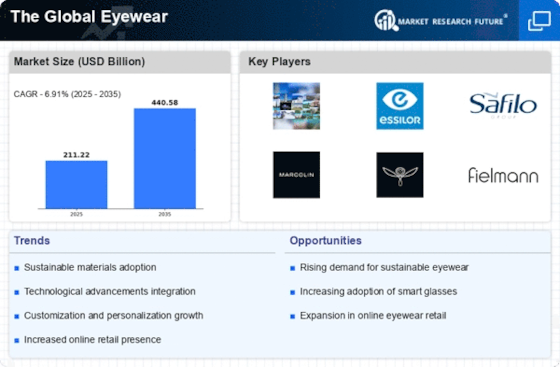
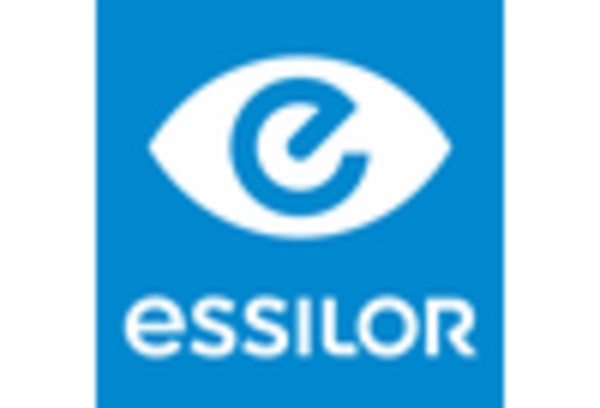
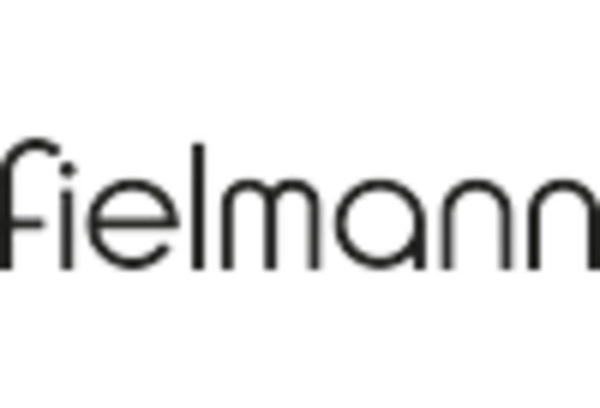
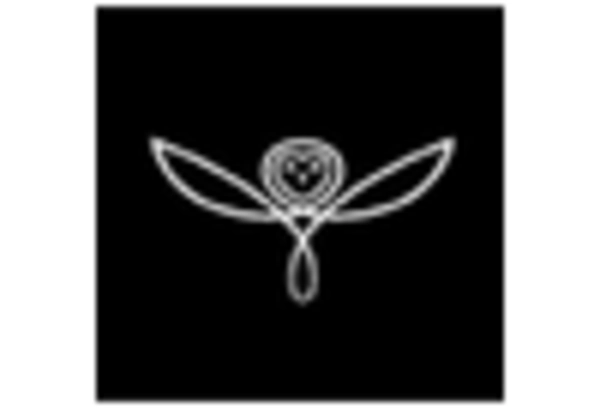

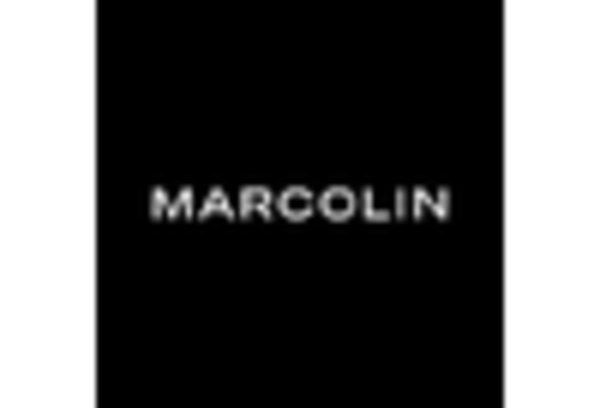
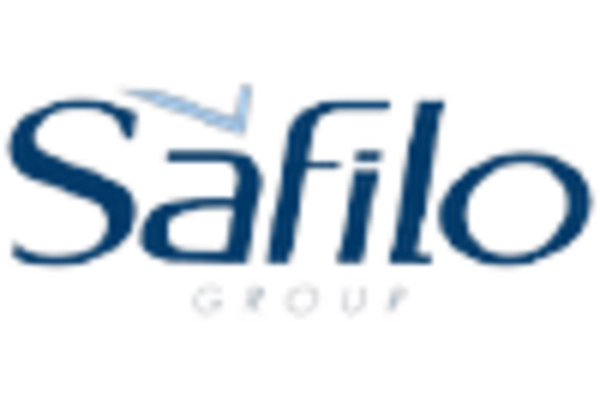










Leave a Comment